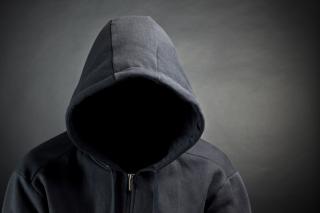Trayvon Martin Shooting FAQ

a) What is “stand-your-ground law”?
One of the jurors in the George Zimmerman case is reported to have stated that the jury wanted to find Zimmerman guilty of something, but could not because of how the Florida stand-your-ground law is written. The law's critics argue that Florida's law makes it very difficult to prosecute cases against people who shoot others and then claim self-defense. The shooter can argue that he felt threatened, and in most cases, the only witness who could have argued otherwise is the deceased Stand-your-ground law states that a person may “justifiably use force in self-defense when there is reasonable belief of an unlawful threat, without an obligation to retreat first”[2] Stand-your-ground law confers immunity upon the person acting under it, thus shielding that person from suit, charges, detention and arrest.
b) How is Stand Your Ground different from the Castle Doctrine?
Stand-your-ground law allows the right of self-defense in any place the person has the legal right to occupy; the Castle Doctrine allows the right of self-defense only in a person’s legal-abode or (in some states) any legally occupied place such as one’s vehicle or workplace.[3]
c) What is the Castle Doctrine?
The Castle doctrine guarantees a person, “has certain protections and immunities permitting him, in certain circumstances, to use force (up to and including deadly force) to defend against an intruder -- free from legal responsibility/prosecution for the consequences of the force used.”[4] The term derives from the historic English common law dictum that "an Englishman's home is his castle."
2. What happened between Trayvon Martin and George Zimmerman? George Zimmerman shot Trayvon Martin on February 26, 2012 in a gated community Trayvon was visiting.[5] Zimmerman was a member of the local community watch organization who was off-duty that night. Martin was returning on foot from a local Seven Eleven; Zimmerman was driving to the grocery store when he spotted Martin. Zimmerman thought Martin suspicious, called police, exited his car and followed him. An altercation ensued during which Zimmerman shot Martin once in the chest at close range. Martin died at the scene.[6] 3. The trial of George Zimmerman. On April 11, 2012, George Zimmerman was charged with second-degree murder in the shooting death of Trayvon Martin. In support of the charges, the State filed an affidavit of probable cause, stating that “Zimmerman profiled and confronted Martin and shot him to death while Martin was committing no crimes.”[7] In the State of Florida vs. George Zimmerman jury selection ended on June 20, 2013. The jury of six women returned a verdict of not-guilty after two days of deliberations on July 13.[8] 4. Why the acquittal of Zimmerman excites controversy. This case is racially charged because Zimmerman was accused of using racial-profiling to identify Trayvon Martin as a threat to the community. While on the one hand the trail of Zimmerman and its outcome are cited as proof that the American system of jurisprudence works, on the other it is seen as yet another example of the inherently unfair and racist reality of jurisprudence in America.[9] Read comprehensive coverage of the Trayvon Martin case on Huffington Post. Read Marches, rallies follow Zimmerman acquittal on NBC News. Read MLK’s Daughter After Zimmerman Verdict: It’s 1963 All Over Again on The Blaze. Read Martin family attorneys, civil rights and community leaders react to Zimmerman acquittal on The Grio.[1] Robles, Frances (March 17, 2012). "Shooter of Trayvon Martin a habitual caller to cops". The Miami Herald. Archived from the original on July 11, 2013. [2] Stand-your-ground law. Wikipedia, http://en.wikipedia.org/wiki/Stand-your-ground_law [3] Castle doctrine. Wikipedia, http://en.wikipedia.org/wiki/Castle_doctrine [4] "Assembly, No. 159, State of New Jersey, 213th Legislature, The "New Jersey Self Defense Law". http://www.njleg.state.nj.us/2008/Bills/A0500/159_I1.PDF [5] Martin and his father were visiting his father's fiancée and her son at her townhome in The Retreat at Twin Lakes in Sanford, a multi-ethnic gated community. [6] Shooting of Trayvon Martin. Wikipedia, http://en.wikipedia.org/wiki/Shooting_of_Trayvon_Martin [7] Colby, Edward; Hamacher, Brian; Emmanuel, Lisa (April 12, 2012). "George Zimmerman Charged With Second-Degree Murder". NBC Miami (online). [8] Trial of George Zimmerman. Wikipedia, http://en.wikipedia.org/wiki/Trial_of_George_Zimmerman [9] Social Media’s Reaction to the Acquittal of George Zimmerman. Jennifer Preston. NY Times online, “The Lede”, July 14, 2013. http://thelede.blogs.nytimes.com/2013/07/14/social-medias-reaction-to-the-acquittal-of-george-zimmerman